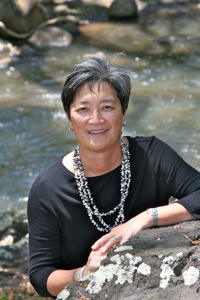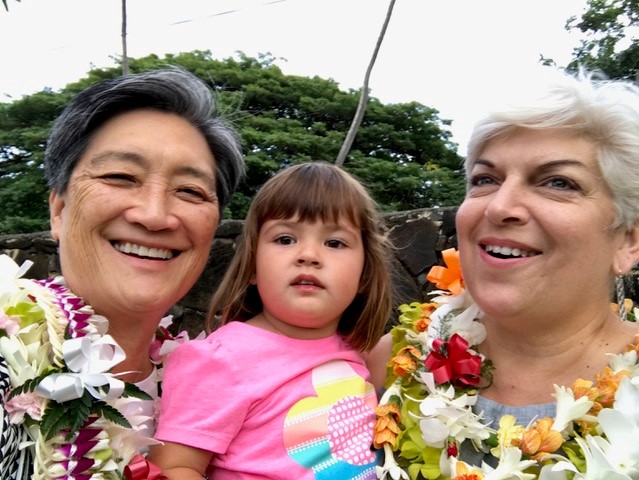News & Events
July 26, 2017
Val Kalei Kanuha, PhD, Returns to UW School of Social Work

Val Kalei Kanuha is the UW School of Social Work’s new Assistant Dean of Field Education. In a recent conversation, she describes herself as a “returnee” because she is a PhD graduate of the School. Shortly after graduating from the UW SSW in 1997, Kanuha moved to her home state of Hawai’i to take her first position in academia as a social work and sociology professor at the University of Hawaiʻi at Manoa. She ended her tenure there as Professor and Chair of the Department of Sociology.
But after twenty years at the University of Hawaii, Kanuha is back at her Alma Mater. Speculating on her recent move, Kanuha mused, “I bet you’re wondering why a tenured full professor from Hawaiʻi would move to Seattle for a senior lecturer and Assistant Dean position.” Answering herself, she noted “I was looking for new challenges and opportunities, and when I met people like Karina [Walters], Tessa [Evans-Campbell], and Bonnie [Duran] at IWRI, I thought, ‘I’d like to be a part of that.’” Then too, Kalei had kept in close contact with her former dissertation committee chair and mentor, Eddie Uehara. When Uehara informed her that the Assistant Dean position had opened up, Kalei felt it was the right employment opportunity for her and the right time for her family to make a move.
Kalei and her partner, Kata (also an MSW social worker) met in Seattle 24 years ago when Kalei was a doctoral student, and both of them were ready for career and life changes. They also had Anela, their pre-school-ready three year-old daughter, to think about and the diversity of educational opportunities available in the Seattle area was a major advantage. Despite Seattle’s wet weather—which remains a big concern for them!—Kalei affirms that she and the family are very happy to be back in the Northwest.
Kalei’s personal status as a Native Hawaiian-Japanese American lesbian of color informs how she views her work within academia and society. So does the 20 years she spent in direct social work practice in the Twin Cities of Minneapolis/St. Paul, Hawaiʻi and New York City after receiving her MSW degree from the University of Minnesota.“Throughout my social work career, I never envisioned myself as an academic, but after finishing at UW I found out that I loved research. The power of being a professor to help communities and build the capacity of community agencies has been so gratifying. My move to the UW brings me back closer to practice, field work and communities as I now have the best of academic and practice experience from the last 40 years of my social work career. Also, having IWRI here is a big reason I love this place.”

Left to Right: Val Kalei, Anela, and Kata
In addition to Native Hawaiian issues, Kalei’s primary research interest is gender-based violence against women, specifically women of color, indigenous women, and lesbian, queer and transgender communities. As Kalei states, “It is a widespread and intransigent problem which has garnered little attention particularly in our indigenous communities, mainly because it is so painful for individuals and communities to address. One of my goals here is to work with IWRI to consider seeking project funding to conduct research on and interventions to address violence perpetrated upon indigenous women.”
Kalei points to IWRI’s successful Yappalli project (a re-walking of the Choctaw Trail of Tears using behavioral health interventions to improve physical health) as a great example of an intervention that can be adapted to Hawaiians through such means as traditional Native Hawaiian sailing canoes or cultural practices such as hula, carving and native plant cultivation. “When people feel better, they’ll do better,” she states. That simple maxim also seems to guide Kalei and her family’s new life in Seattle.




